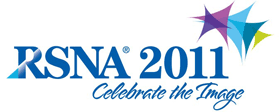
Abstract Archives of the RSNA, 2011
LL-PHS-TH13B
The Clinical Utility of Estimated Blood Dosimetry by Remote External Radiation Measurement of Whole-Body Radioiodine Retention and Formulated Calculation in the Advanced DTC Patients during Hospitalization
Scientific Informal (Poster) Presentations
Presented on December 1, 2011
Presented as part of LL-PHS-TH: Physics
Yu Wen Chen MD,MA, Presenter: Nothing to Disclose
Yung-Chang Lai, Abstract Co-Author: Nothing to Disclose
Han Wen Chen MD, Abstract Co-Author: Nothing to Disclose
Pi Jung Hsiao, Abstract Co-Author: Nothing to Disclose
Radiation toxicity is a concerned issue in advanced DTC (differentiated thyroid cancer) patients with high-dose radioiodine ablation. Standard protocol of direct blood radiation measurement is complicated. In this study, we assess eliminated radiation by remote external radiation measurement and apply formulated calculation to estimate individual blood dosimetry during hospitalization. Based on the results, we discuss certain parameter will affect whole body radioiodine retention.
During past six months, we collect 29 advanced DTC patients (mean age: 50.9 ± 5.2, between 20-72 year-old; ratio of male to female: 1:1) had total thyroidectomy and cervical lymph nodal resection. As standard thyroxin withdrawal or administration of rh-TSH preparation, these patients received above 100 mCi dose of radioiodine based on guideline. During hospitalization, we provide remote electronic equipment of external radiation measurement system to record whole body radioiodine retention individually. Based on sequential two-time point duration of external radiation measurement (1min/ meter), estimated blood dosimetry is calculated by the formulism (Hanscheid, 2009). The released dose of patient is 1 mR/ h/ meter and average duration of hospitalization is 24 to 48 hours.
The mean of estimated blood dosimetry of these patients is 1.9 ± 0.5 Gy ( 0.5 to 4.5 Gy). There are five patients who have estimated blood dose over 2.0 Gy. And three of them are over 3.0 Gy. One is renal failure with peritoneal dialysis, the other two have extensive metastasis and another one is a young-age Asian woman with extreme short status.
We demonstrate clinic utility of remote external radiation measurement of whole body radioiodine retention and formulated calculation. According to radiation toxicity, individual difference as extreme small body mass index, volume of residual thyroid remnant/ metastasis and condition of renal eliminated function should be concerned when tailing empirical dose of radioiodine ablation.
Remote radiation measurement and formulated calculation provide easy methods for blood dosimetry evaluation during RAI indivisually.
Chen, Y,
Lai, Y,
Chen, H,
Hsiao, P,
The Clinical Utility of Estimated Blood Dosimetry by Remote External Radiation Measurement of Whole-Body Radioiodine Retention and Formulated Calculation in the Advanced DTC Patients during Hospitalization. Radiological Society of North America 2011 Scientific Assembly and Annual Meeting, November 26 - December 2, 2011 ,Chicago IL.
http://archive.rsna.org/2011/11034319.html

